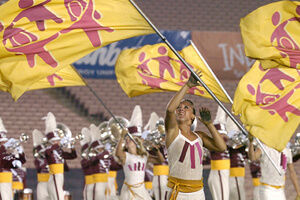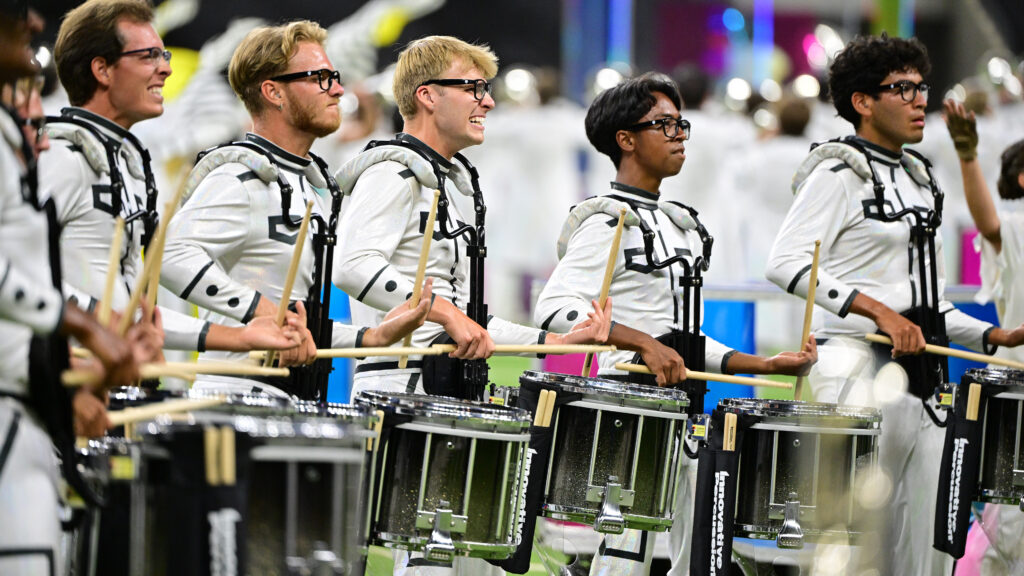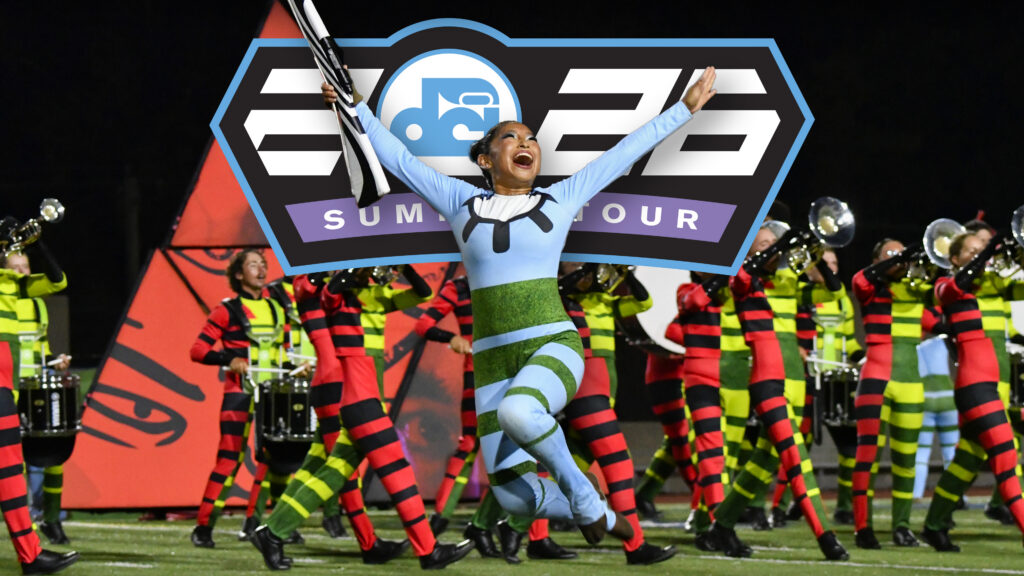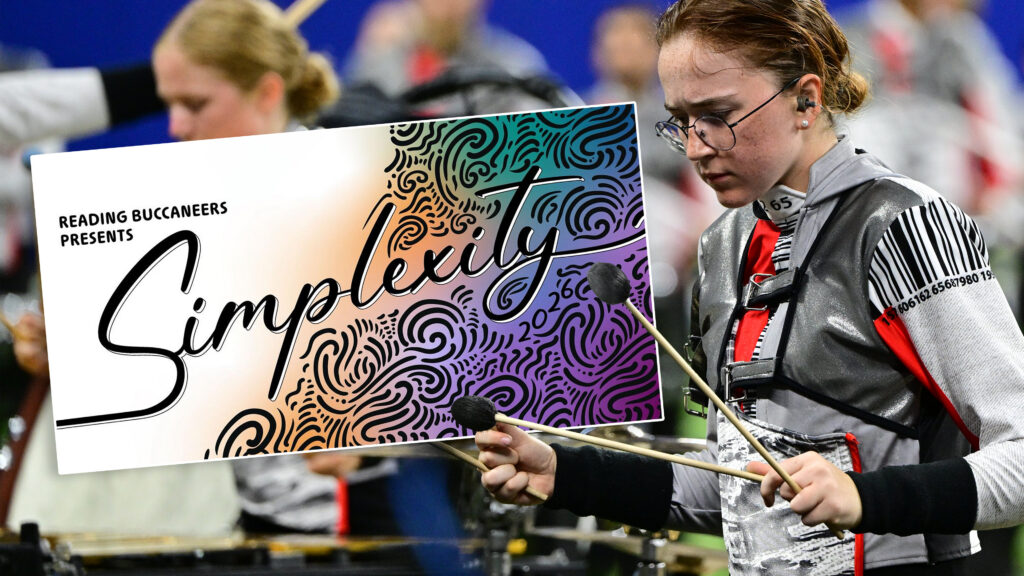
It took 35 years to get the DCI World Championships west of the Rocky Mountains, but the final week of the 2007 season made up for the wait by providing plenty of intrigue atop a season that was already somewhat unusual. True; Blue Devils won the corps’ 12th title by almost a point, but in Semifinals, the Cadets came within a half tenth of placing first after beating BD in two California shows by a combined total of 0.32. How unusual was the season? Bluecoats finished in seventh place, after beating every other corps at least once during the prior weeks. The corps pulled down the highest score ever for any seventh place finish and was only 0.125 out of fifth place. The Academy, in its first year in Division I, placed 13th in Finals, but scared a number of corps by placing 10th a couple weeks earlier in San Antonio. Among some of the highlights: The 50th Anniversary of the Blue Devils organization saw a return of the renowned huge fabric wings, starting dark and gradually adding light. The mallet opening of Phantom Regiment’s “On Air” remains one of the most remarkably unique effects ever heard from a front ensemble percussion section. Santa Clara Vanguard offered a new way of pronouncing “!,” and Carolina Crown delighted with a photo finish horse race. Bluecoats’ “Matrix-like” laser beam alarm system set off every camera in the stands and fans welcomed the Colts back to Finals for the first time since 2001. Finishing in second place, the Cadets presented a show with perhaps the longest title ever; “This I Believe: Truth, Value and the Personal Experience Called Drum Corps.” It was arguably the most controversial show of the year due to its frequent use of narration, provided by members wearing wireless microphones while performing and offering their innermost thoughts on the meaning and value of music and drum corps. The opener was Czechoslovakian composer Vaclav Nelybel’s landmark 1965 work for concert band, “Symphonic Movement,” a modernistic, atonal theme and variations based on an eight-note serial tone row that was as progressive on the Rose Bowl field as it was when first written. Within the first half-minute, four different members stated what they believed in. The narration intrigued many fans and infuriated many more, and those fans were none too shy about expressing their frustrations or confusion. Various segments of the work were preceded by narration regarding how those segments were made possible by the teamwork within the different sections of the corps, covering groupings of brass, percussion and guard. For me, one of the most chilling as-seen-live moments in a number of seasons was the segment toward the end of the accompanying video clip, when the members of the horn line visually accented the sudden crescendos with dynamic horn and body movements. The narration then broke down the construction of the harmony, rhythmic counterpoint and melody. Without the narration, it was pure drum corps—something not lost on even the most strident critics.
1999 Overview
Discount DVD offer ends Monday, Feb. 4 at 8:30 a.m. ET.

Michael Boo was a member of the Cavaliers from 1975-1977. He has written about the drum corps activity for more than a quarter century and serves as a staff writer for various Drum Corps International projects. Boo has written for numerous other publications and has published an honors-winning book on the history of figure skating. As an accomplished composer, Boo holds a bachelor's degree in music education and a master's degree in music theory and composition. He resides in Chesterton, Ind.





